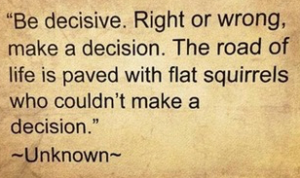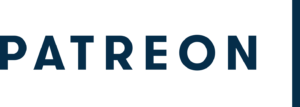This has proven much more difficult to write than I anticipated, probably because this is the hardest decision I have ever had to make.
Harder than the decision to leave Memphis and my career in the arts in order to pursue a career in journalism. Harder than the decision to divorce my first husband. And I’m not one to take a leap without considering all the options, so you’d best believe that I have discussed this with Jim, with my parents, with close friends, with mentors. Probably until they were tired of talking about it with me.
I have dithered and stalled, because once I post this, it’s final. It’s real.
I’m leaving the newspaper.
With that decision ends 21 years in daily journalism.
Wow, that was hard to type. And I haven’t even done it yet.
If you know me at all, you know how much my work means to me. I’ve dedicated my entire adult life to journalism, ever since I made that decision to quit my artistic career and pursue a different kind of storytelling, the kind that can change the world. I always knew I wanted to tell stories and be in public service, and in journalism I found a way I could do both.
I believed it then and I believe it now, and the only difference between my passion for news in 1997 and my passion now is the amount of grey in my hair. For 18 of those 21 years, I’ve reported for the Belleville News-Democrat. I was and am proud to part of this team. The people I work with are some of the finest journalists I have ever known, with a dedication and steadfast perseverance that would stun the readers if they could only glimpse behind the scenes.
And I have been proud to serve the people of Madison County for 17 of those years, through good times and bad. It has been my privilege to chronicle the life of my adopted home.
I’ve said often in my speeches that this is the best time in history to be a journalist, and I meant it. Still do. Ask me about it sometime, and buckle in for an essay.
Now I have a wonderful new opportunity.
Beginning in August, I will be a teaching assistant at Southern Illinois University Edwardsville. I’ll be teaching newswriting, and the assistantship will allow me to pursue my masters degree. I was actually accepted last November to begin in January, but it took a while for the financing to come through, and they were kind enough to allow me to defer my acceptance to fall.
For those keeping score, my whole family will be in college together. It’s like a sitcom, only we provide our own laugh track.
With a masters, I can pursue a full-time teaching position. I can pass on to beginning journalists all that I learned in 21 years of shoveling coal into the furnace, along with the things they won’t find in their textbooks. I can focus their attention on the Code of Ethics and the ongoing debates that too often get shoved into ivory-tower hypotheticals. I can be useful to my profession, and continue my career in a new phase.
I’m really excited about this. I always intended to move into teaching when I was finished reporting, a second career in the sunset of the first. This is a little earlier than I planned, but you know what they say – life is what happens when you’re making other plans.
However.
There’s one to two years of grad school ahead of me. A teaching assistantship does not equal the salary of a full-time reporter (low bar, but still). I am blessed that Jim has a good solid job with health insurance. But we were largely reliant on my income for our family, and that means I don’t get to sit around and wax philosophical in coffeehouses while I’m in school. (What? I was in college once upon a time.)
The development of The Plan has taken up much of the winter, and if this blog has been quieter than usual, that’s why. Here’s what I’m planning to do:
• Freelance writing. I’ll be knocking on a hell of a lot of doors, and I hope my esteemed colleagues in other publications will remember me when they need someone who can turn around a story quickly and well. In part, I’ll be doing this because rent is a thing, and in part it’s because I cannot bear to give up journalism entirely. It’s been my daily life for half of the time I’ve been breathing, and I find it hard to even say my name without adding my newspaper onto the end of it, as though it is another last name. I love the work, and I intend to keep doing it as long as I am able.
• Fiction. I’m still working out how my fiction work will change. To be frank, the novels have never paid off as much as I had hoped financially. While I would dearly love to write the next Nocturnal Urges book and finish the Blackfire zombie trilogy and a half-dozen other books sitting around on their outlines, it may be that novellas and shorts will be my necessary focus in the next two years. It really depends what the market will bear: just like in journalism, you get more of whatever you click. If I see more interest in my fiction, I’ll create more fiction.
• Photography. I’ve already expanded the photography site with its own online shop, and am pursuing more local art and craft shows with an eye to moving into higher-end art shows when I can afford the fees. I’ve also opened a shop on FineArtAmerica, so if you ever wanted my creepy angels on a tote bag or greeting card, now’s your chance.
• Editing. I’ve been doing side-gig work as an editor and writing coach for many years, working with new writers and small press publishers to help them shape and grow their work. I will be taking on more clients, and hopefully with a faster turnaround now that it will be part of my “day job.”
• Patreon. Yes, I’m joining the marching legions. Frankly, this is going to be the most important part of our survival. And I’ll sing for my supper: essays, short stories, musings on grad school, on journalism and the news of the day, photography, live chats, and much more are layered in the rewards for those kind enough to support me in this new venture.
If you’ve ever wondered, “How can I help?” – this is how.
Please subscribe to my Patreon, and share it around with others.
What’s not changing: Literary Underworld will continue to operate. The store remains open. The newsletter, the website and the author features will continue.
What may change: Cons. It will basically come down to hard cash: a con may cost us $300-500 to attend, and people aren’t buying books at cons like they once were. Jim and I are always there for a con willing to pay our way, but that isn’t common anymore. So we may have some hard choices to make, and we hope our friends on the circuit will understand if we have to regretfully decline.
What’s not changing: My volunteer work. I will not have to step down as president of the St. Louis Society of Professional Journalists or give up my seat on the Ethics Committee, because I’ll still be earning the bulk of my living from journalism. I will also continue to run Relay for Life, because cancer doesn’t take a vacation while I go back to school.
What may change: Little things. Donations. Birthday gifts. Dinners out. Our trips to Memphis. I think it’ll basically depend on how many gigs I get each month, and our standard of living will have to adjust.
A more flexible schedule may mean I’m free to do things I was never able to do before, like a cup of coffee on a weekday afternoon with a friend in the city, or a daytime photo shoot before the garden closes at dusk. I’m rather looking forward to remaking my life.
But this is scary. I’ve been mugged three times and won each fight, and I wasn’t as scared then as I am now. I’ve had two heart surgeries and an emergency c-section and wasn’t as scared as I am now. When I divorced my first husband, it was terrifying to think about being on my own again with a four-year-old hostage to fortune, but I wasn’t as scared as I am now.
I’m not afraid of the work load or the hustle of a freelancer. I’m not afraid of being back in the classroom after more than two decades. I’m nervous but not afraid of teaching, a whole new profession for which I am prepared only on the sense of knowing the subject matter thoroughly, and having guest lectured many times for various colleges. I imagine there’s a learning curve in front of me, but that’s exciting, too.
No, I’m afraid of the money, of not being able to support my family. I spent a long time as a working single mother. I did the poverty rounds of choosing whether to stiff the electric bill or the water bill (electric, they can’t shut you off in winter); of eating peanut butter so Ian could have a good meal; of finding non-exterminator ways to fight roaches in the apartment; of begging friends to watch my son when I had to work a Saturday shift because I couldn’t afford ten hours of babysitting.
I know poor, and I don’t want to be there again, not when Jim and I have worked our tails off to reach a point where all the bills are paid and up to date and we have a little in savings and almost no debt besides the student loan I’ll never escape. Do we really want to go back to peanut butter and cutting the milk with water to make it last longer?
I’ve had multiple panics where I call Jim and tell him I’ve lost my mind, we’re going to starve and be homeless. He always talks me down out of my tree, and tells me that he believes in me and in my ability, and we are going to be okay. Ian and Jim are both my biggest supporters, and we are all in this together as a team.
It’s not an easy thing to change your life, but who’s going to do it for you?




